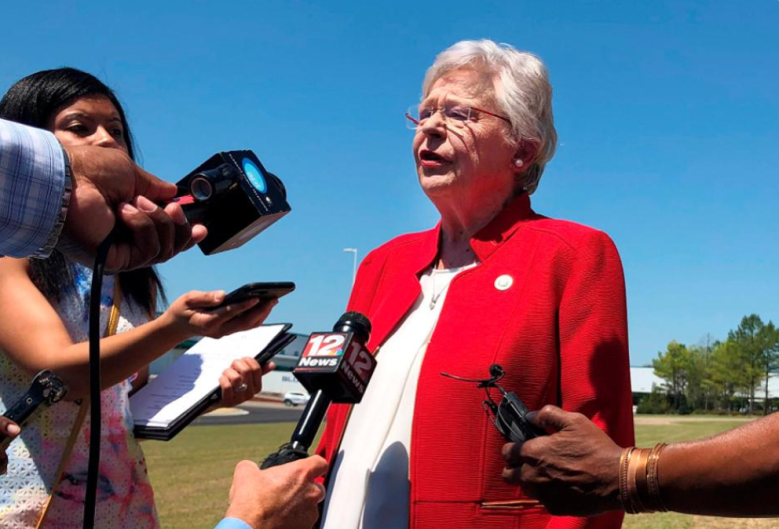
On May 15, Alabama Governor Kay Ivey signed into law the controversial anti-abortion law, in which doctors in the state could face up to 99 years in prison for performing an abortion unless a woman’s health is at “serious” risk. The Alabama Human Life Protection Act outlaws almost all abortions in the state, and she signed the bill even after the state’s Republican-controlled Senate voted to remove exceptions for victims of rape and incest.
The 74-year-old republican was in her second term as Alabama’s lieutenant governor when she took over for Gov. Robert Bentley in 2017, who resigned amid a scandal involving his senior political adviser, Rebekah Mason. And while Ivey’s right wing political views are well documented, she’s not very outspoken when it comes to her personal life, unless it becomes gossip in the news. In 2018, she was accused of being a lesbian, rumors to which she responded saying “It’s disgusting. It’s false. It’s a bald faced lie.”
Gov. Ivey has been married twice, but she has no children. After graduating from Auburn University, she married first husband Ben LaRavia, and moved to California to teach at Rio Linda Senior High School in Sacramento in order to be closer to him. After the marriage ended, she moved back to Alabama to pursue a career in politics.
After signing the strictest abortion law in America’s history, Ivey, the state’s second ever female governor said in a statement: “To the bill’s many supporters, this legislation stands as a powerful testament to Alabamians’ deeply held belief that every life is precious and that every life is a sacred gift from God,” Ivey said in a statement. The bill “closely resembled an abortion ban that has been a part of Alabama law for well over 100 years.”
Endorsed by the Susan B. Anthony List since last year, whose mission is to end abortion by electing national leaders and advocating for laws that save lives Ivey added: “Many Americans, myself included, disagreed when Roe v. Wade was handed down in 1973,” she said. “The sponsors of this bill believe that it is time, once again, for the U.S. Supreme Court to revisit this important matter, and they believe this act may bring about the best opportunity for this to occur.”
Advocacy groups such as Planned Parenthood and the American Civil Liberties Union have already threatened to sue the state over the measure.
READ NEXT: Chase Bliss Colasurdo: 5 Fast Facts You Need to Know